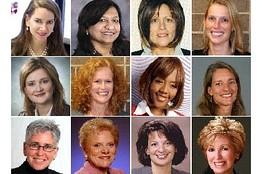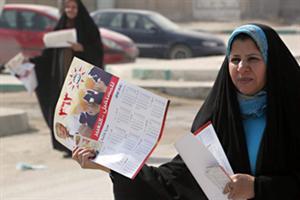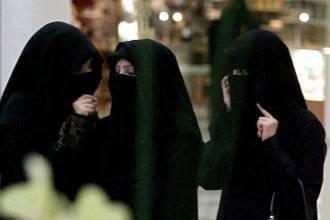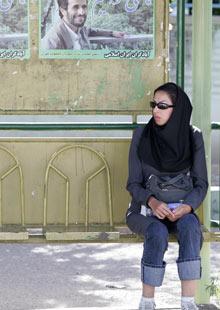
A supply-chain management company from Edison, N.J., has been ranked the No. 1 fastest-growing women-led company in the U.S., according to an annual ranking by trade group Women Presidents' Organization.
Argent Associates Inc., which specializes in the telecommunications industry, posted $115 million in annual revenues in 2009, a jump from $9.2 million in 2007. Founder Beatriz Manetta attributes the growth spurt, noteworthy in an otherwise stagnant economy, to an increase in clients' imports from China and India that are assembled in her warehouses.
WPO, a trade group for multimillion-dollar women-owned businesses, determined its third annual Top 50 Fastest-Growing Women-Led Companies list using a formula that combines percentage revenue growth and absolute growth. To be eligible for the list, companies must be privately owned, women-owned or led, and have generated at least $2 million by year-end 2009, among other criteria. About 400 companies applied for inclusion on the list.
2010-04-23
Posted in Women In the News

Female dissidents are rewriting the rules in countries where they can't even show their faces.
For women in Iraq, running for office is an especially risky proposition. The country's Constitution, like those of many nations that have been racked by conflict, requires that a quarter of all parliamentary seats must go to women.
Yet even as the number of female leaders and political activists has increased, so has the backlash. In February, a female candidate was shot and killed in Mosul.
Yet female activists continue to challenge Iraq's religious conservatives. Hanaa Edwar, one of the founders of the Iraqi Women's Network, a coalition of NGOs, recently blasted the minister of education for trying to separate boys and girls in public schools.
"These ideas are imported from Iran!" she says.
2010-04-22
Posted in Women In the News

The girl’s unusual legal challenge to the arrangement generated international media attention and scrutiny of Saudi Arabia’s record of child marriages
A 12-year-old Saudi girl has won a divorce from her 80-year-old husband in a case that may help to introduce a minimum age of marriage in the kingdom for the first time.
The girl’s unusual legal challenge to the arrangement generated international media attention and scrutiny of Saudi Arabia’s record of child marriages. It also prompted the state-run Human Rights Commission to appoint a lawyer to represent her. The commission has capitalized on the case and pushed for a legal minimum age for marriage of at least 16.
“The main aim is to not allow cases like this to happen again,” said Alanoud al-Hejailan, a lawyer for the commission. “There will be some opposition, of course, but we feel that public opinion has changed on this issue.”
Since the girl’s case became public, judges and clerics in Saudi Arabia have waded into the debate about whether child marriages should be banned. The Prophet Muhammad’s marriage to a 9-year-old girl has been used as justification for the practice in some quarters.
In January, however, Sheikh Abdullah al-Manie, a senior Saudi cleric, spoke out in defense of the girl, declaring that the Prophet’s marriage 14 centuries ago could not be used to justify child brides today.
Click here for the full story:
Fox News
Related links:
More About Saudi Arabia On AWR
2010-04-21
Posted in Women In the News
 Susan notes: see my response to this (hopefully temporary) insanity here.
Susan notes: see my response to this (hopefully temporary) insanity here.
Women behaving promiscuously are causing the earth to shake, according to cleric, as Ahmadinejad predicts Tehran quake.
A senior Iranian cleric says women who wear revealing clothing and behave promiscuously are to blame for earthquakes.
Iran is one of the world's most
earthquake-prone countries, and the cleric's unusual explanation for why
the earth shakes follows a prediction by the president, Mahmoud Ahmadinejad,
that a quake is certain to hit Tehran and that many of its 12 million
inhabitants should relocate.
"Many women who do not dress modestly
... lead young men astray, corrupt their chastity and spread adultery
in society, which increases earthquakes," Hojatoleslam Kazem Sedighi was
quoted as saying by Iranian media.
Women in the Islamic Republic are
required by law to cover from head to toe, but many, especially the
young, ignore some of the more strict codes and wear tight coats and
scarves pulled back that show much of the hair.
"What can we do to avoid
being buried under the rubble?" Sedighi asked during a prayer sermon
last week. "There is no other solution but to take refuge in religion
and to adapt our lives to Islam's moral codes."
Seismologists have
warned for at least two decades that it is likely the sprawling capital
will be struck by a catastrophic quake in the near future.
Some experts
have even suggested Iran should move its capital to a less seismically
active location. Tehran straddles scores of fault lines, including one
more than 50 miles long, though it has not suffered a major quake since
1830.
Click here for the full story:
The Guardian
Photo Credit:
Behrouz Mehri/AFP/Getty Images
Related links:
More About Iran On AWR
2010-04-21
Posted in Women In the News

Riyadh: the owners of these reports are themselves demanding this, they said that this is not such claim, but an extrapolation of the corridors of decision-making relying also numerous instances was the most important of modern Saudi minister ancient Saud al-Faisal When I asked the writer and the outstanding "New York Times" , Maureen Dowd, who had spent 10 days in Saudi Arabia about the feelings of the edge in terms of allowing women to drive cars, replied with a smile: "I hope so", adding "in the next visit with you Bring an international driving license."
Not so long ago also a brief statement to the Director General of Saudi traffic Seaman Ajlan the newspaper Okaz less than a month in which he said that nothing prevents the employment of women in traffic and open women's sections.
He added that the Department of Ajlan also directed traffic and open women's sections in all regions, despite the fact that to the director of Traffic, the first of its kind, but some of them on another drive which is a clearance large proportion of women who own cars in Saudi Arabia.
According to the latest study published in 2004, 47 per cent of Saudi women have the cars but they can not command, often driven by the driver or the son, who did not enter the labor market after.
And talk about Saudi women driving the car although it is not "taboo" for political leaders who have more than appropriate that this significant social sincere, but that did not prevent hints for his support, leaving a main obstacle so far, according to observers lies in the infrastructure of the decision as important as this, where Saudi Arabia is in most aspects, including traffic is made up of staff and leading men by almost complete, comes amid a society that tends to maintain strong, especially in the virtual affairs.
Click here for the full story:
By Yousef Al-Hazza
elaph.com (Tranlated Version)
Click here for original link in Arabic
Related links:
More About Saudi Arabia On AWR
2010-04-21
Posted in Women In the News
 A supply-chain management company from Edison, N.J., has been ranked the No. 1 fastest-growing women-led company in the U.S., according to an annual ranking by trade group Women Presidents' Organization.
A supply-chain management company from Edison, N.J., has been ranked the No. 1 fastest-growing women-led company in the U.S., according to an annual ranking by trade group Women Presidents' Organization. Female dissidents are rewriting the rules in countries where they can't even show their faces.
Female dissidents are rewriting the rules in countries where they can't even show their faces. The girl’s unusual legal challenge to the arrangement generated international media attention and scrutiny of Saudi Arabia’s record of child marriages
The girl’s unusual legal challenge to the arrangement generated international media attention and scrutiny of Saudi Arabia’s record of child marriages Susan notes:
Susan notes:  Riyadh: the owners of these reports are themselves demanding this, they said that this is not such claim, but an extrapolation of the corridors of decision-making relying also numerous instances was the most important of modern Saudi minister ancient Saud al-Faisal When I asked the writer and the outstanding "New York Times" , Maureen Dowd, who had spent 10 days in Saudi Arabia about the feelings of the edge in terms of allowing women to drive cars, replied with a smile: "I hope so", adding "in the next visit with you Bring an international driving license."
Riyadh: the owners of these reports are themselves demanding this, they said that this is not such claim, but an extrapolation of the corridors of decision-making relying also numerous instances was the most important of modern Saudi minister ancient Saud al-Faisal When I asked the writer and the outstanding "New York Times" , Maureen Dowd, who had spent 10 days in Saudi Arabia about the feelings of the edge in terms of allowing women to drive cars, replied with a smile: "I hope so", adding "in the next visit with you Bring an international driving license."